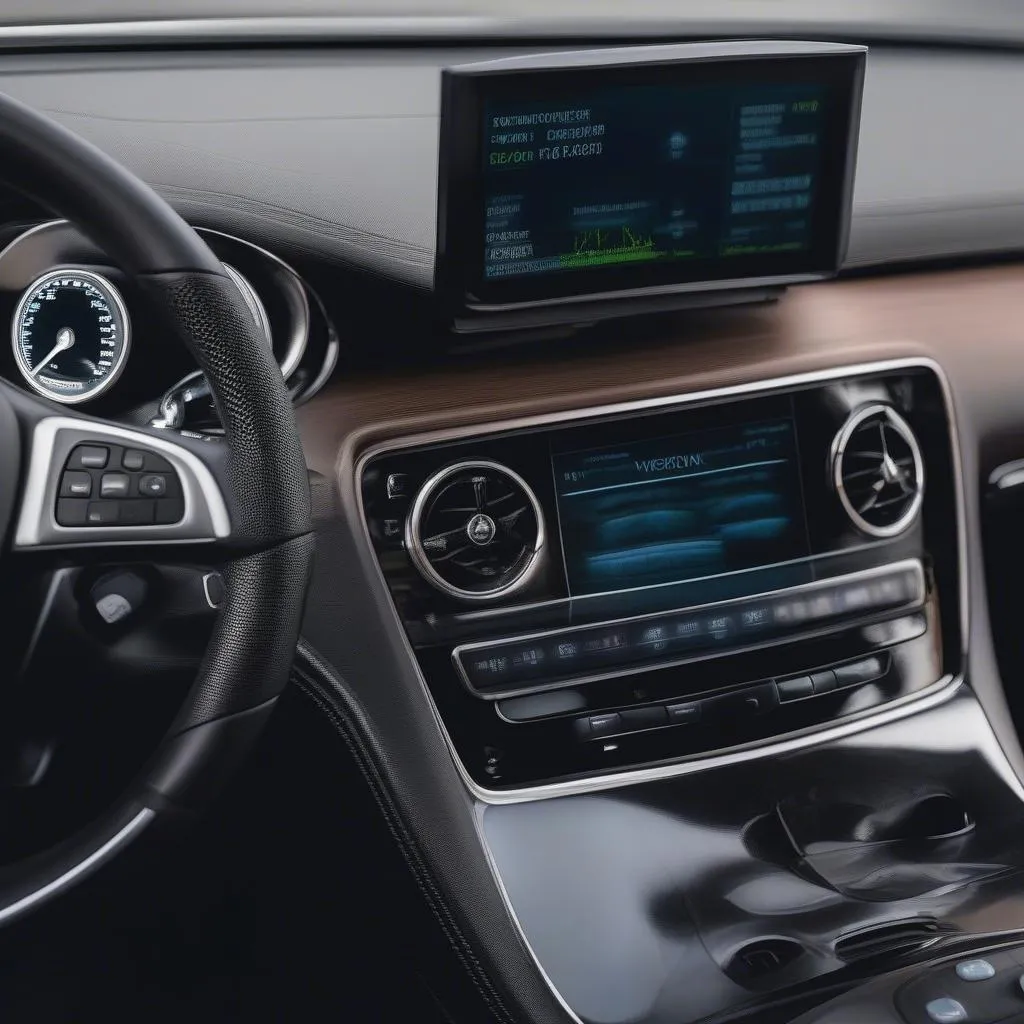A dead Jeep battery is a frustrating experience, especially when it happens repeatedly. If your jeep battery keeps dying, this comprehensive guide will help you diagnose the problem and find a lasting solution. We’ll cover everything from simple checks to more complex diagnostic procedures. jeep wrangler battery keeps dying owners, in particular, will find this information helpful.
Why Does My Jeep Battery Keep Dying?
Several factors can contribute to a repeatedly dying Jeep battery. Understanding these potential causes is crucial for effective troubleshooting. Some common culprits include parasitic draws, faulty alternators, bad battery connections, and even extreme temperatures. Identifying the root cause saves you time and money on unnecessary repairs.
Parasitic Battery Drain: The Silent Killer
A parasitic draw, also known as a “key-off” drain, occurs when electrical components continue to consume power even after the vehicle is turned off. This slowly drains the battery, leading to a no-start situation. Common culprits include interior lights, faulty door switches, aftermarket accessories, and even the radio.
Alternator Issues: Not Charging Properly
The alternator’s job is to recharge the battery while the engine is running. If the alternator isn’t functioning correctly, the battery won’t receive the necessary charge, eventually leading to a dead battery. Symptoms of a bad alternator can include dimming headlights, flickering interior lights, and strange noises from the engine bay.
Bad Battery Connections: A Simple Yet Overlooked Issue
Loose or corroded battery terminals can prevent the alternator from properly charging the battery. This often overlooked issue can lead to a jeep battery keeps dying, even if the battery and alternator are in good working order. Regularly cleaning and tightening your battery connections is a simple preventative measure.
Extreme Temperatures: Affecting Battery Performance
Both extreme heat and cold can significantly impact battery performance. In hot weather, the battery fluid can evaporate, shortening its lifespan. In cold weather, the chemical reactions within the battery slow down, reducing its capacity to hold a charge.
Diagnosing a Dying Jeep Battery
Diagnosing the reason your jeep battery keeps dying requires a systematic approach. Start with the simple checks, like inspecting the battery terminals for corrosion or looseness. Then, you can move on to more complex tests, such as checking the alternator output and performing a parasitic draw test.
How to Perform a Battery Amp Draw Test
battery amp draw test is a crucial step in diagnosing a parasitic draw. This test involves measuring the current flowing out of the battery when the vehicle is off, identifying any excessive current drain. It requires a multimeter and a basic understanding of automotive electrical systems.
“A proper amp draw test is essential for pinpointing the source of a parasitic drain,” says automotive electrical specialist, John Miller. “Without this test, you’re essentially guessing, which can lead to unnecessary part replacements and wasted time.”
Checking the Alternator Output
Testing the alternator’s output voltage with a multimeter can confirm whether it’s charging the battery adequately. This simple test can quickly rule out a faulty alternator as the culprit.
Jeep Liberty, Wrangler, and Cherokee Specific Issues
While the general principles of battery maintenance apply to all Jeeps, specific models might have unique issues that contribute to a dying battery. For instance, some jeep liberty battery keeps dying cases are linked to specific electrical system quirks. Similarly, certain jeep cherokee battery keeps dying problems can be traced back to model-specific design flaws.
What if my Car Won’t Start But the Battery Isn’t Dead?
Sometimes, a car won’t start even when the battery has sufficient charge. This can be due to a variety of issues, including a faulty starter, ignition switch problems, or even fuel system issues. If your car won t start but battery not dead, further diagnostics are needed.
“Don’t assume a dead battery is always the culprit for a no-start condition,” advises Sarah Chen, a certified automotive technician. “Many other components can prevent a vehicle from starting, even with a good battery.”
Conclusion: Keeping Your Jeep Battery Alive
Addressing a jeep battery keeps dying situation requires a methodical approach. By understanding the potential causes and utilizing the diagnostic procedures outlined in this guide, you can identify the root cause and implement a lasting solution. Regular maintenance, such as cleaning battery terminals and ensuring proper alternator function, is crucial for preventing future battery issues and keeping your Jeep running smoothly.
FAQ:
- How often should I clean my Jeep battery terminals? Cleaning your battery terminals every six months is a good practice.
- What are the signs of a bad alternator? Dimming headlights, flickering interior lights, and unusual noises from the engine bay can indicate a faulty alternator.
- How long does a Jeep battery typically last? A Jeep battery usually lasts between 3 and 5 years.
- Can extreme temperatures damage my Jeep battery? Yes, both extreme heat and cold can negatively impact battery performance and lifespan.
- What should I do if my car won’t start even with a good battery? Further diagnostics are needed, focusing on components like the starter, ignition system, and fuel system.
- How can I prevent my Jeep battery from dying repeatedly? Regular maintenance, including cleaning terminals and checking the alternator, is crucial for prevention.
- What’s the first step in diagnosing a dying Jeep battery? Inspect the battery terminals for corrosion or looseness.

